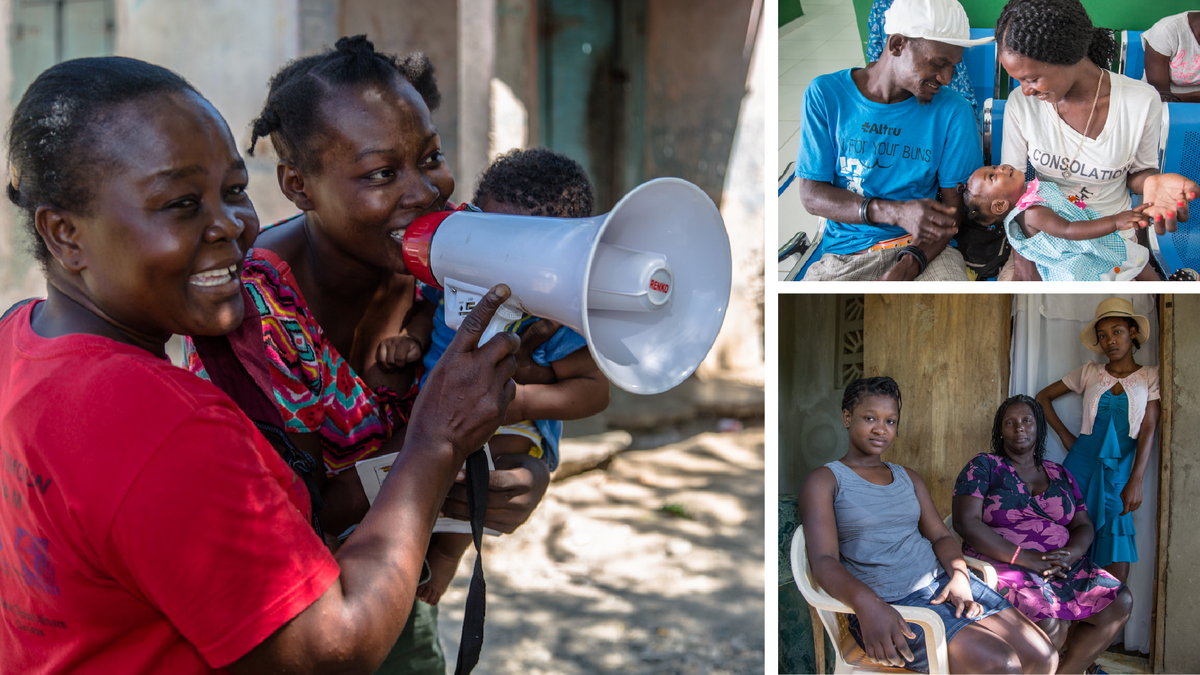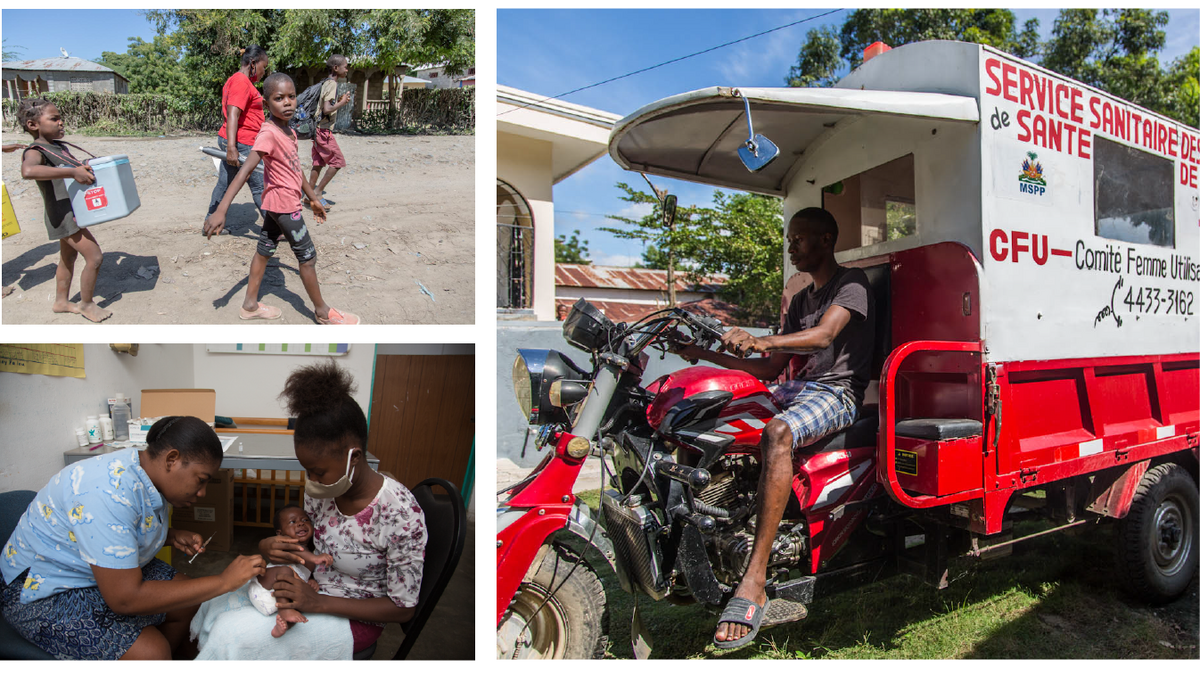
In response to the United Nations’ two Millennium Development Goals (MDGs) relating to the reduction of child mortality and improvement of maternal health (MDGs 4 and 5), the USI-CECI consortium rolled out the Project in Support of the Mother-Child Continuum (ACOSME) in October 2016 in Haiti’s Département du Nord. According to World Health Organization (WHO) reports, Haiti is one of the world’s worst-hit countries in terms of infant/maternal mortality and morbidity. Because of Haiti’s low GDP, the government is struggling to mobilize the resources needed to improve the situation. ACOSME’s main goal, accordingly, is to support the government in addressing these particular issues effectively.
Today, the USI, in partnership with CECI and the Direction Sanitaire du Nord, is proud to present the project’s results and congratulates the Haitian government for the outstanding progress of its healthcare system in the targeted areas.
Here are a few of the most remarkable results achieved through March 2020 in areas where ACOSME was deployed:
Reduction in infant/maternal mortality and morbidity:
- In-hospital maternal mortality dropped from 342 per 100,000 in 2016 to 279 per 100,000 in healthcare institutions supported by the ACOSME project.
- The proportion of assisted deliveries rose from 26.87% to 36%.
- The percentage of children cured of malnutrition soared from 8.2% to 35.76 %.
- The percentage of children with their full set of vaccinations climbed from 38.5% to 58%.
Improved access to healthcare services:
- 3 maternity wards were built, two renovated and 24 mobile clinics put into service to increase coverage and geographic access.
- 19 public health centres received essential medications, supplies and equipment.
- 2,586 community healthcare positions were created.
- 14 microprojects were completed, providing 6 sources of running water, 6 motorbike ambulances, 1 rowboat-ambulance, and 1 medical supply procurement project.
- Four maternal death review committees, approved by the central directorate Santé de la Famille en Haïti, were established.
- 2 equipped and operational institutional ambulances were placed in service to handle medical and obstetrical emergencies.
- 5 operational research results were reported on and 5 evidence-based intervention plans were established.
Training health workers:
- 22 community health workers (including 12 women) were hired and trained, enabling them to conduct 61,571 home visits.
- 20 managers from the Direction de la Santé du Nord (14 women and 6 men) were trained in gender equality.
- 15 women’s healthcare committees (CFUs) were created and several activities conducted with 150 health workers (150 women) to support and strengthen these groups.
- 170 medical and nonmedical training sessions were given to 424 healthcare providers and health service managers of Direction Sanitaire du Nord healthcare institutions.
- 149 supervisory visits and 168 post-training follow-up visits were made to 19 healthcare institutions.
- 54 awareness-raising activities were organized for opinion and religious leaders, as well as women’s groups.
Buoyed by these achievements, the ACOSME project demonstrates that support in bolstering the healthcare system and its governance is essential and helps reduce maternal and infant mortality.
‘’These results are highly encouraging, but a big challenge remains over coming years. We are counting on the support of our partner, the Direction Sanitaire du Nord, and collaboration with the central directorates of the Ministère de la santé d’Haïti, to continue working together on improving health conditions in the Département du Nord,”concluded Islene Lazo, senior coordinator of the ACOSME project at USI.
The ACOSME project is being carried out with the financial support of the Government of Canada, through Global Affairs Canada.
Photos : Georges Harry Rouzier
